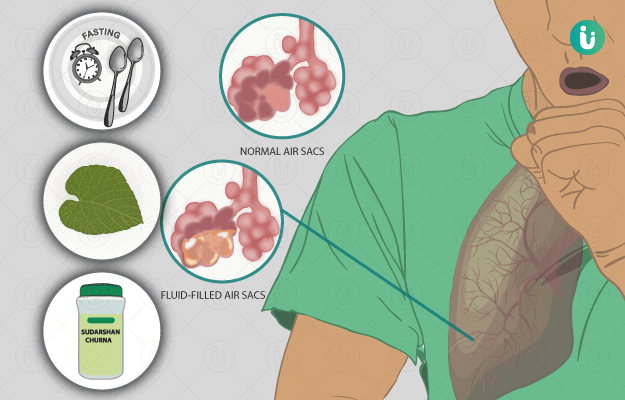Pneumonia is an inflammatory condition of lungs that is caused by bacterial, viral or fungal infections. It usually results in filling up of air sacs or alveoli of the lungs with fluid or pus. The severity of pneumonia depends upon many factors, such as the type of microorganism involved, individual’s age and health.
It is the leading cause of death among children under the age of five, with approximately 2,400 deaths per day. According to the UNICEF reports, pneumonia accounted for 16% of the 5.6 million deaths of children under five in 2016. In addition, adults over the age of 65; people with medical conditions such as diabetes, heart failure, asthma or chronic obstructive pulmonary disease; and people with a weak immune system due to HIV/AIDS, transplantation, chemotherapy or long-term steroid use are also prone to pneumonia. The different types of pneumonia based on their causative agents are:
- Bacterial pneumonia: The most common type of bacterial pneumonia is pneumococcal pneumonia, caused by Streptococcus pneumoniae. Other bacteria that may cause pneumonia include Haemophilus influenzae, Chlamydophila pneumoniae, Legionella pneumophila and Mycoplasma pneumoniae.
- Viral pneumonia: Pneumonia can also be caused by viruses infecting the upper respiratory tract. Influenza virus and respiratory syncytial virus (RSV) are the most common causes of viral pneumonia in adults and young children, respectively. Other viruses like rhinovirus, human parainfluenza virus (HPIV) and human metapneumovirus (HMPV) may also cause pneumonia.
- Fungal pneumonia: Fungal pnemonia occurs due to infection of Pneumocystis jirovecii, Histoplasma capsulatum, Cryptococcus neoformans and Coccidioides immitis.
- Aspiration pneumonia: This type of pneumonia is caused by breathing in a foreign or harmful substance, such as food, smoke or a chemical.
- Hospital-acquired pneumonia: As the name suggests, this pneumonia is aquired in hospitals while being operated or treated for some other condition.
Homeopathy, a form of alternative medicine used for the treatment of pneumonia, is based on the theory of individualisation. It takes into account the lifestyle, hereditary factors, personality as well as the medical history of a person and aims to treat the person as a whole including their psychological and physiological health.
Some of the homeopathic remedies that are effective against pneumonia are aconitum napellus, antimonium tartaricum, bryonia, ferrum phosphoricum, phosphorus, sulphur and veratrum viride.
































